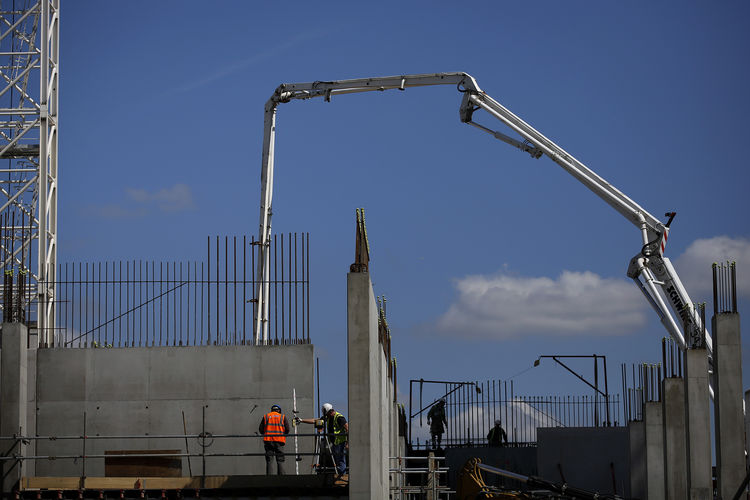- ICRC: $100bn Required for Nigeria’s Infrastructure Development
The acting Director General, Infrastructure Concession Regulatory Commission (ICRC), Mr. Chidi Izuwa, has put the total amount of funds required to provide quality infrastructure in Nigeria over the next six years at about $100 billion.
Izuwa estimated that while about $60 billion would be required for the oil and gas sector; about $20 billion to revamp the power sector; $14 billion for road; and between $8 and $17 billion for rail tracks.
The ICRC boss said this while speaking at the annual conference of the Finance Correspondents Association of Nigeria (FICAN) in Lagos at the weekend.
He pointed out that Nigeria fairs poorly on domestic savings, investments and government spending compared with its peers.
Izuma said the federal government decision to concession most of the port terminals was a step in the right direction.
According to him, Nigeria’s huge gap in infrastructure has over the years diminished economic growth and competitiveness.
“At present, the value of Nigeria’s infrastructure is about 35 per cent of Gross Domestic Product (GDP), paling in comparison with 70 per cent for larger economies,” he added.
Izuwa said between 2009 and 2013, Nigeria invested a mere $664 per capita per annum in infrastructure or three per cent of GDP, compared with an average of $3,060 or five per cent of GDP in developed countries.
“Less than 56 per cent of Nigerians have access to electricity compared to 80 per cent for developed countries. This level of access translates to an average of 24 hours in a week.
“For over 75 per cent of businesses operating in Nigeria, power supply is a major constraint. Of the over 10,000 MW of Nigerian power sector generation capacity, between 2,500 to 3,500 MW is available for over 170 million.
“Compares unfavourably with South Africa that generates 50,000 megawatts for a population of about 50 million,” he added.
Izuma pointed out that about 68 per cent of all roads in the country are in deplorable condition, with only about 18 per cent of Nigerian federal roads paved.
“Experiences from other countries show that primary financing by banks and refinancing through bonds is the ideal model for infrastructure funding.
“Through this model, the focus of commercial and merchant banks in infrastructure financing should be on providing funding up to the pre-commissioning stage of projects.
“Given their strong project appraisal and monitoring skills, and their healthy capitalisation, banks are well placed to take up financing in the pre-commissioning phase, when project risk is the highest.
“After commissioning, banks must refinance the debt (through bonds) to long-term investors.
“Refinancing frees up bank funds and enable these funds to be deployed in new infrastructure projects,” he added.
Enumerating the things required to be done to attract private investment into the country, the Chief Executive Officer, Rand Merchant Bank Nigeria, Michael Larbie, who also spoke at the two-day conference with the theme: ‘Nigeria’s Infrastructure: Issues, Challenges and Options,’ said: “Clearer legal and regulatory framework, improved and efficient competitive bidding procedures, consistent sector policies, (e.g.tariffs regimes, rule of engagement), strengthened management of fiscal obligations and supportive regulatory environment are key.
“Government must build a track record of public private partnership (PPP) performance to attract large sums of long-term funding from pensions funds and insurance.”
Also, the Chief Executive Officer of Viathan Engineering Limited, Mr. Ladi Sanni, said there was need for more private capital to give infrastructure a facelift in the country.
Sanni said: “Part of the problem we have in Nigeria is contract sanctity. The judiciary has a role in interpreting the legal framework. Government needs to demonstrate that private investors can go in to long term investment with them.
“Government bonds limits investment into high risk power project. We would like government to look at the issues of infrastructural bond.”

 Naira3 weeks ago
Naira3 weeks ago
 News4 weeks ago
News4 weeks ago
 Naira4 weeks ago
Naira4 weeks ago
 Jobs3 weeks ago
Jobs3 weeks ago
 Naira3 weeks ago
Naira3 weeks ago
 Travel3 weeks ago
Travel3 weeks ago
 Naira3 weeks ago
Naira3 weeks ago
 Investment4 weeks ago
Investment4 weeks ago






























